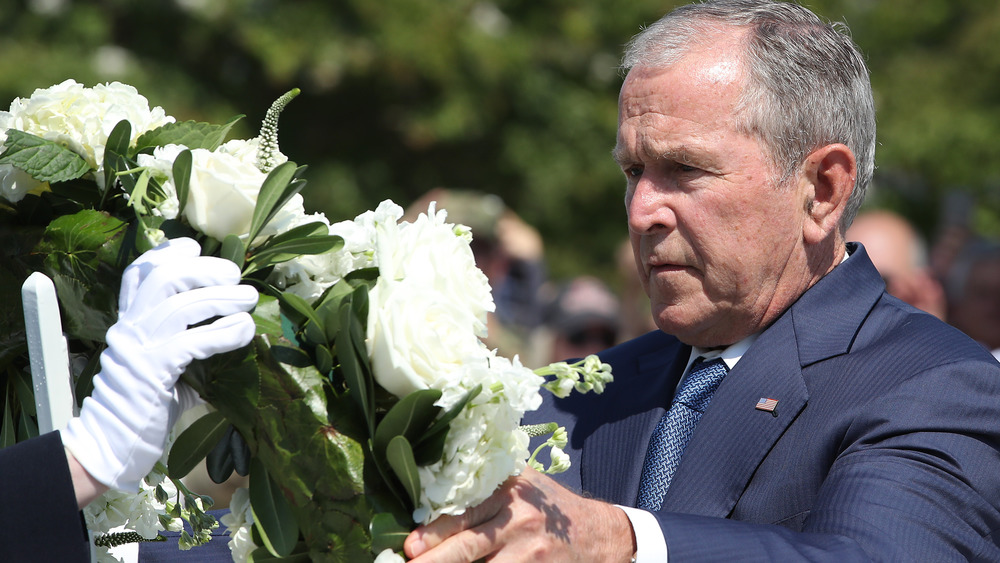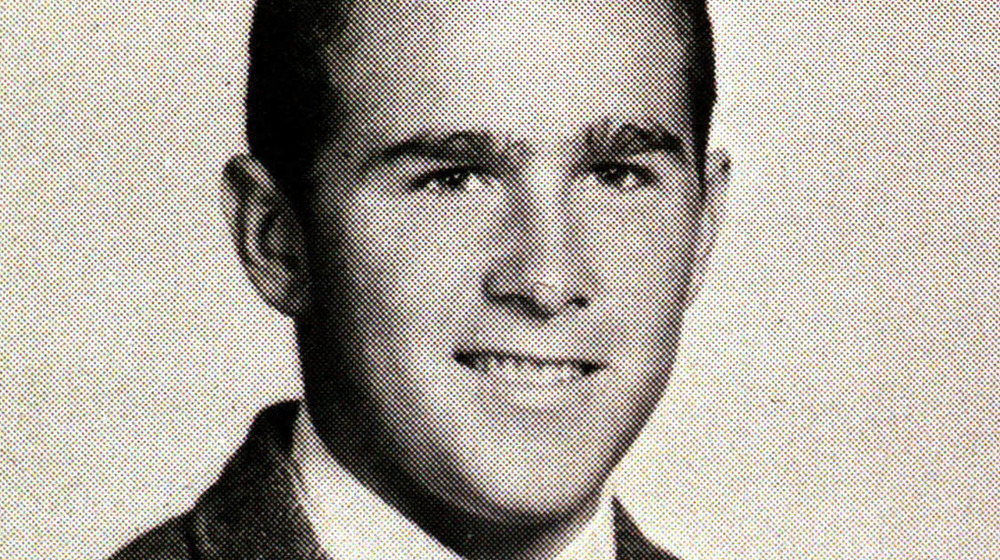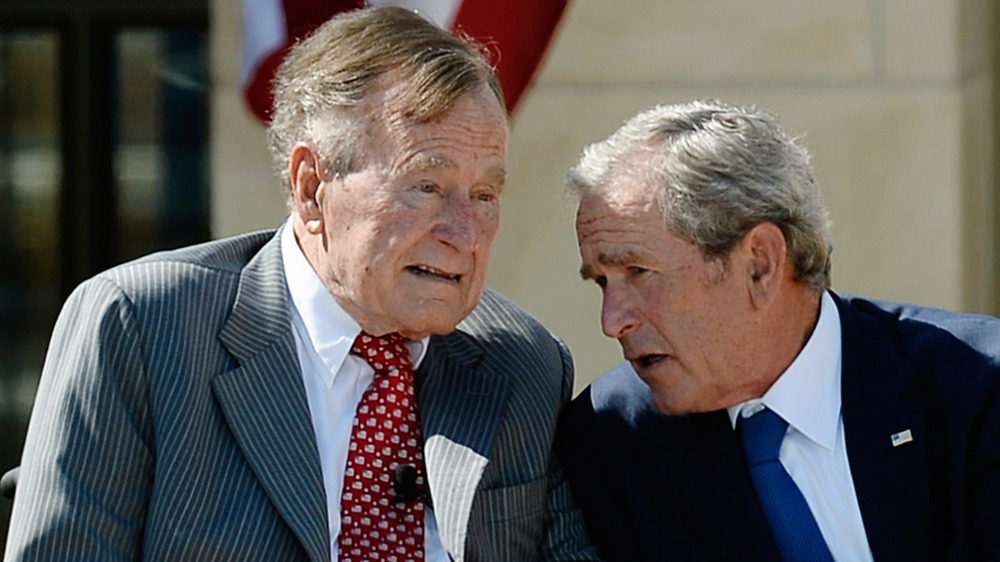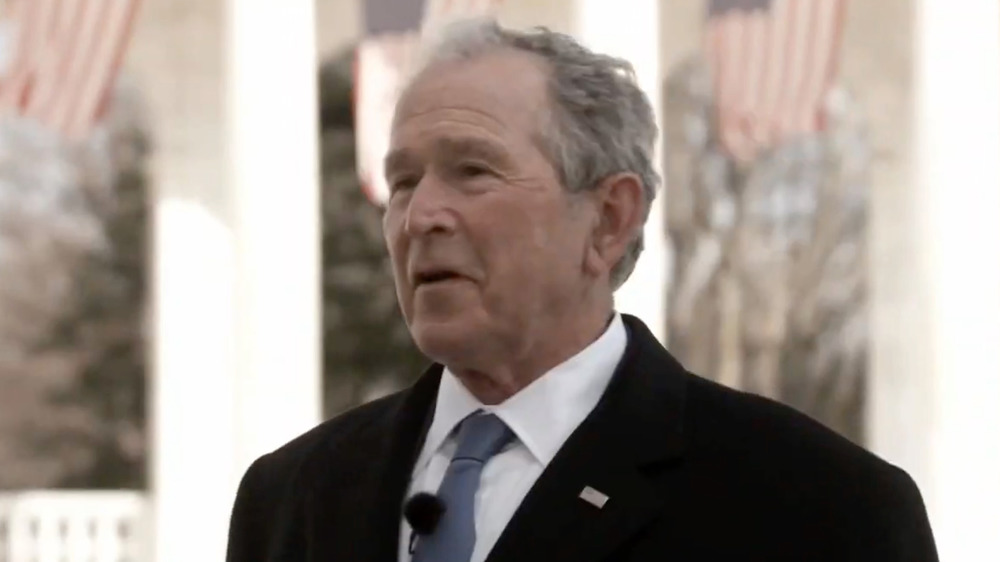The Truth About George W. Bush's Military Career
The year 1968 was particularly violent and eventful for American service members serving in Vietnam. The new year was barely a month old when the North Vietnamese launched the Tet Offensive on January 31. There were 246 Americans who lost their lives that day, marking it as the most deadly day in the most deadly year (16,899 service members would be killed in 1968) of that long conflict, says NPR.
Perhaps it comes as no surprise that 1968 was also the year of the war's highest American troop levels. The American War Library says that more than 536,000 troops were in Vietnam in 1968 to fight a war that was drawing increasing criticism stateside. According to Stars and Stripes, the Tet Offensive marked a real turning point in Vietnam — a war Americans were increasingly aligning against.
The Washington Post reports that a young Yale student named George Walker Bush decided to enlist that May. But it wasn't Bush's enlistment decision that would later be called into question during his successful 2000 and 2004 presidential campaigns, so much as the unusually lucky circumstances that surrounded it, as well as some critical, seemingly missing (via Fact Check) service time.
Did Bush have help from his father to serve stateside?
As the Washington Post tells it, George W. Bush was running out of options in 1968. With less than two weeks left at Yale, the draft deferment that had so far spared him from compulsory military service was ending. Perhaps recognizing it would be better to choose the circumstances of his enlistment rather than leaving it to chance, he signed up for pilot training with the Texas Air National Guard. The move would ensure Bush fulfilled his service requirements in Texas.
Despite scoring the lowest-possible passing grade on a critical pilot's test, Bush was sworn in as an airman, a move the Post was critical of in a 1999 piece about Bush's service. At the time of his son's enlistment, Bush's father — George H.W. Bush, who would of course also go on to become President — was serving as a Texas congressman. The Post, alluding to the younger Bush's fortuitous stateside posting, surmised that "the commanders of the Texas Guard clearly had an appreciation of politics."
Did George W. Bush get special treatment in the military?
Despite the fact that Bush completed his full five-year enlistment and was granted an Honorable Discharge by the Texas Air National Guard in 1973, questions about his time in service lingered, particularly allegations he'd tried to avoid Vietnam and questions around several absences during his time in uniform. One of those absences, a missed annual medical exam in 1972, is undisputed and led to the Guard suspending Bush from flying, as History.com reports.
Bush, meanwhile, has characterized his time quite differently than have his detractors. According to the Post, Bush recalled his thought process around enlistment in a 1989 interview, explaining, "I'm saying to myself, 'What do I want to do?' I think I don't want to be an infantry guy as a private in Vietnam. What I do decide to want to do is learn to fly." Bush learned that and much more during his five-year stint in the Guard, but critics continued to raise doubt around his commitment.
Unexplained absences and unsubstantiated allegations
According to the Washington Post, a look at Bush's application for his service with the Texas Air National Guard shows that when asked about possible overseas deployment — a decision in 1968 that would almost certainly lead to deployment to Vietnam — Bush checked the box "do not volunteer." Critics, most famously Dan Rather (in a move that nearly cost him his career, as Texas Monthly reports), even produced documents that suggested Bush took advantage of his status as a Congressman's son to enjoy long absences away from duty. The veracity of these documents, however, could never be proven and Rather was forced by his employer, CBS, to apologize for the reporting.
Despite the backlash to the Rather report, Bush did take documented time away from his service. According to the Washington Post, Bush was put on inactive duty for two months following his completion of basic training, and spent the time working on a Republican Senate campaign. As to whether Bush was ever officially AWOL (Absent Without Leave) from his duties, History.com asserts that later analysis suggests that "Bush's military records do not substantiate [...] some critics' claims that Bush ever went AWOL." We'll never know the spirit behind Bush's decision in 1968, but there's little doubt historians will keep debating it as his post-presidential legacy continues to be reassessed.



